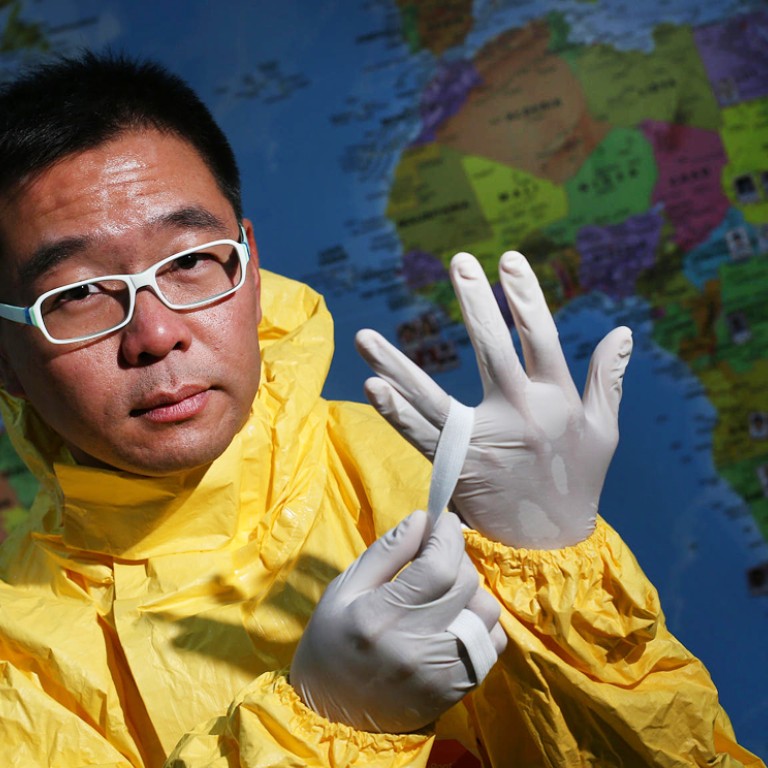
Ebola battle 'scarier than war zone' says first Hong Kong nurse at centre of fight
Hong Kong nurse tells of four-week stint trying to help victims of epidemic in West Africa
The first Hongkonger to work in an Ebola treatment centre in West Africa has described the fight against the virus as more terrifying than his nursing stints in war zones.
"The atmosphere was really tense," said Chiu Cheuk-pong, 38, who returned from his four-week trip to Monrovia, the capital of Liberia, last month. "You know the invisible enemy is everywhere, but no one can see it. All one can do is be extra vigilant and follow all infection control measures strictly."
Chiu joined Medecins Sans Frontieres in 2013 and that same year was sent to Pakistan for nine months to work in an emergency unit on the Afghanistan border, the scene of violent clashes.
"In a war zone, at least you can see the gun wounds and injuries on patients," he said.
"But with Ebola, it is much scarier; you cannot see a virus."
Chiu was in charge of the triage station, admitting patients into the 250-bed Ebola treatment centre, one of eight centres managed by the humanitarian organisation in West Africa.
He was instructed to keep a two-metre distance from patients while he questioned and observed them for signs of the disease. Those whom he suspected of having Ebola would be admitted for further tests.
Once, he admitted a family of six, including a three-year-old, all of whom later tested positive for the virus.
One 19-year-old girl broke down in tears and refused to enter the clinic when Chiu decided to admit her. It took 10 minutes for him to calm her down and persuade her to be treated.
There is no cure for Ebola as yet, which means the centre can only offer to relieve victims' symptoms, helping them to survive while their immune systems try to beat the disease. According to Medecins Sans Frontieres, the fatality rate is about 60 per cent - that means that for every 10 patients that entered the centre, only four would walk out alive.
"It is very dramatic. Many families were being brought to the centre by the outreach team," Chiu said. "After a week, sometimes the entire family was gone. Other times, only one family member was able to walk out. This disease had really torn apart a lot of families."
Chiu also helped out in the "high-risk zone", where confirmed Ebola patients were nursed.
"The medical staff would gather and pray every day before walking into the high-risk zone to tend to the patients," he said. "Of course you worry about yourself, but, most of all, you fear bringing the disease back to your family."
It took 15 minutes to put on the protective gear, including goggles, before entering the zone. "Putting on the gear was hard, as we had to make sure our skin was entirely covered," he said. "But taking it off was the hardest part; if you forget just one step, it may kill you."
Each medic could only remain inside the zone for about 40 minutes due to the heat of wearing the gear. "That means we really had to make every minute count," Chiu said.
He recalled comforting a little girl who was the sole member of her family to survive the disease. Chiu gave her some sweets he had bought in Hong Kong with pictures of Pinocchio on the wrappers. The girl's smile has stuck in his memory.
Chiu believes the magnitude of the epidemic - which as of last week had officially claimed 8,641 lives - has been underestimated.
"The Ebola pandemic is like a forest fire, but there are only two buckets of water to put out the flames," he said."This is how short of manpower and resources we are."

